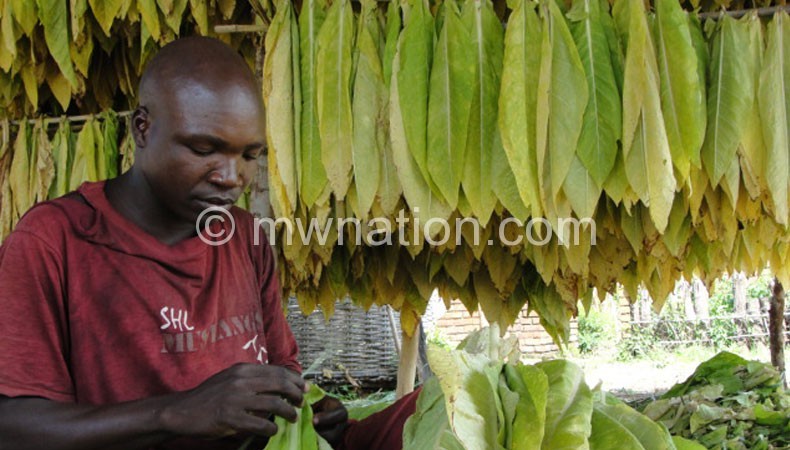FCTC ratification: Is Malawi shooting itself in the foot?
The World Health Organisation (WHO) clearly opened a can of worms for Malawi when it developed the anti-smoking treaty that seeks to reduce consumption of tobacco, the country’s strategic crop.
Tobacco, one of the deadliest global killers which is however Malawi’s major forex earner, employer and a livelihood to many has since entering into force of the treaty in 2005 seen a plunge in its demand with smokers being forced to smoke in excluded places—effectively reducing consumption.

But what exactly is the anti-smoking treaty, the Framework Convention on Tobacco Control (FCTC)?
The WHO FCTC is a treaty that provides to reduce demand for tobacco through price and tax measures, promotion and branding, regulation of tobacco products contents, packaging and labeling.
The treaty is now closed for signature with 168 signatories, including the European Union (EU).
However, according to the WHO, countries that did not sign the convention including Malawi but wish to become a party to it, may do so by means of accession, which is a one-step process equivalent to ratification.
Since the opening for signature, there have been different schools of thought with some stakeholders arguing for while others argued against the signing of the treaty.
John Kapito, the Consumers Association of Malawi (Cama) executive director, was one of the vocal people that were for the signing or ratification of the treaty.
Kapito argued that initialing the agreement would be good for Malawi and not bad.
But Malawi, with low levels of smoking prevalence rates relative to global or regional levels, does not smoke its own tobacco.
Some analysts argued signing the treaty would not affect demand for Malawi’s tobacco but would still protect our health.
But as Kapito marched on in his quest to lobby Malawi sign the treaty, stakeholders generally argued the move would mean shooting ourselves in the foot.
They argued it would send a wrong message to buyers for tobacco—the country’s life line—who would happily offer low prices for the leaf because of the wrong message.
Over ten years after the treaty opened for signature, some of Malawi’s major tobacco buyers have started implementing the FCTC—obviously leading to a reduction in demand.
Last year, European Union (EU) institutions said they were considering a revised directive on tobacco products, which would include tougher labeling conditions, such as larger health warnings and the possibility of individual member states introducing plain packaging regulations.
The Tobacco Control Commission (TCC) hit at the move by the EU arguing it infringes on free trade rules.
Chile, mid last year also effected a smoking ban in public places which is seen by many as a total ban on smoking because most public venues in the country do not have outdoor terraces and thus demand for cigarettes is expected to drop.
Around the same time last year, Russian President Vladimir Putin signed a tough bill into a law which prohibits smoking in schools, restaurants, long-distance trains and housing block entrance halls.
But what exactly was the line of argument for Cama—a member of the Framework Convention Alliance, a group of non-governmental organisations (NGOs) that helped draft the treaty—which is also provided by the treaty was that Malawi stood to benefit by signing the controversial treaty?
The FCTC under Article 17 provides that parties shall, promote, as appropriate, economically viable alternatives for tobacco workers and growers—that is, clearly support Malawi if it were a member to diversify away from tobacco.
Apparently the global campaign against smoking has served as a wakeup call for Malawi, which has an economy that is heavily dependent on the tobacco industry.
In an interview on Monday, Tobacco Association of Malawi (Tama) chief executive officer Graham Kunimba has argued that ratifying the treaty will give Malawi an opportunity to have a stronger position possibility in reference to Articles 28, 29 and 33 of the FCTC.





